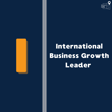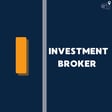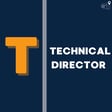Become a Creator today!Start creating today - Share your story with the world!
Start for free
00:00:00
00:00:01

Physiotherapy Business Owner: David shows us that its never to late to change careers and take on the world
If you’re listening to our podcast because you want to change careers and industry completely, you don’t want to miss this one.
David’s not only changed from high-end financial services to running a physio and personal training business, but he’s getting ready for his next shift into psychology.
https://www.thecareerchangecoaches.com/
Transcript
Introduction to A to Z Jobs
00:00:05
Speaker
Welcome to A to Z Jobs, the podcast that delves into the fascinating world of careers, one profession at a time. In each episode, we'll deep dive into a specific profession, exploring its history, requirements, challenges and rewards. So get ready to expand your horizons, challenge your perceptions and discover a world of possibilities.
David's Career Shift from Finance to Fitness
00:00:24
Speaker
I'm Roxy. And I'm Nate. And we're excited to host you on this journey. If you're listening to our podcast because you want to change your career and industry completely, you don't want to miss this one.
00:00:35
Speaker
David's not only changed from working in finance, he's now running a physio and personal training business and getting ready for his next shift into psychology. Hi David, welcome to our podcast. Lovely to be here, thank you. Brilliant. As I always say on all of our episodes, let's dive straight into the first question and ask you what you do for a living.
00:00:56
Speaker
Well, what I do at the moment is multifaceted. I live up in Hong Kong and work for a company called Joint Dynamics, and Joint Dynamics is a physiotherapy and health and fitness company where we look after personal training, we look after rehabilitation of normal muscular injuries, but since then we've sort of branched out into psychology, men's health, women's health.
00:01:17
Speaker
But my role as one of the owners of the company is to do business development. I train executives through their health journey and do a lot of the marketing. It's pretty broad-faceted, to be honest. It's a bit of a Swiss Army knife in the company. Brilliant. That's so exciting. You're involved in absolutely everything.
00:01:42
Speaker
Yes, correct. When you're in with a small company, we started a long time ago. We were 10 years old in June, and you just have to do everything. So on the public holidays, on the cleaner. Well, I used to be anyway. And so we had to get that done as well. So it's interesting. I work with my wife. She helped start the company and some really close friends.
00:02:03
Speaker
So you do, because you're so emotionally attached to the company, you do do everything, especially when you can see an opening or you think that something's lacking and you'll tend to want to try and set the moral high ground of effort. And so even if something's quite, you know, menial or something's not particularly enjoyable, you'll definitely do that so that you can sort of just make sure that you know, everyone knows that, you know, you're not just a top down guy.
A Day in the Life of David in Hong Kong
00:02:35
Speaker
So what does a day in the life of David look like then? What sort of tasks do you do to make everything chug along? My clients, so I train clients, I start at six o'clock. So my alarm will go off at quarter to five. So I'll get up, I'll do just like a little 10 to 15 minutes exercise myself while the coffee's on the stove.
00:02:57
Speaker
Then bounce out of that, grab a shower, sort of blast through as many emails as I can, as early as I can, and then get to the office, set up the gym, talk to the other trainers just before they start with their clients, and then my clients will turn up at about 10 to 6. And from there, I'll train clients probably back to back until about 1 o'clock.
00:03:17
Speaker
try and grab something to eat in the middle of that. And then in the afternoon, it'd be a bit more administrative. We've got lots of different initiatives. I spend a lot of time taking meetings in the afternoon with local tier one corporates about their corporate wellness strategies, these sorts of things.
00:03:34
Speaker
you know at the end of the day I try and get home to the kids I've got three kids and they're all on holidays at the moment and so my wife's pulling her hair out trying to work from home while balancing you know three kids on on holidays so yeah I'll race home do that then probably cook dinner because my wife's a terrible cook so I cook she's yeah she's woeful she's
00:03:58
Speaker
she's a very engineer like cook so you know I remember one time she rang me up to ask me what sort of shade of brown is golden brown and you know at that point I knew I was in trouble so yeah so I do I do all the cooking as well and then sort of try and hit the sack pretty early because I've got to be up pretty early. Fantastic.
00:04:18
Speaker
So you do, so you mentioned admin. What does admin look like for your type of business? Is that finance? It's a bit of everything.
Navigating Business Challenges in Hong Kong
00:04:26
Speaker
So obviously it's been a brutally difficult time of it in the health and fitness industry, particularly up in Hong Kong. They've had, you know, Melbourne obviously had some pretty fierce restrictions and that went for six months. Well, we had that for two and a half years.
00:04:39
Speaker
almost you know it was it was really volatile so in addition to trying to generate the revenue within the company via giving our other staff leads you know we did start the company with about five people and now we've got about 74 people in Hong Kong we've got an office that we opened over in Wimbledon in London just recently
00:04:58
Speaker
And I'm one of the few business people in our business. Everyone else is pretty much a physio or a trainer or a crier or an osteopath or a psychologist or a nutritional expert, these sorts of things. Whereas there's very few of me who read balance sheets, look at cash flows, negotiate leases, these sorts of things. So I tend to do a lot of that paperwork to make sure that we get to the end of the month and we can pay everyone, which is obviously pretty important.
00:05:28
Speaker
But then I have quite a longitudinal view on business and so I'll be sort of trying to plant seeds to things that won't happen for sort of six to nine months, you know, so you'll be curating relationships with different industry leaders and different industry influences up here.
00:05:42
Speaker
make sure that a you're not seen as the person that no one wants to talk to because it's a very small type incestuous little environment that we're in. You tend to want to market a lot with a lot of the people that are perceived to be your competitors but ultimately the business that we've got has like physiotherapy competitors, they've got personal training competitors, they've got psychology competitors but we don't actually have a business that
00:06:06
Speaker
encompasses everything under one roof like we do to have a single competitor. So for us, it's very easy to have plausible deniability about contacts with different people who they think that you might be a threat. You say, well, you know, we do something marginally different. And so it means that you can be pretty much a friend to everyone, support other businesses, because, you know, if the industry goes well, we go well. So that's that's primarily it. So that's to to overcomplicate it. Yeah. My paperwork is a lot of stuff.
00:06:37
Speaker
And in the middle we're trying to keep, my clientele tends to be quite sea level. So I'll be talking to my clients helpers, I'll be talking to their cooks, their PAs, that sort of stuff more than I do talk to them about how to get them on the path that they need to go. So there's a lot of back and forth on WhatsApp, emails, that sort of stuff to make sure that I hit the mark.
00:07:02
Speaker
That's a lot of hats. That's so amazing. Yeah. It's a very, very, very, you know, very interesting then. Because if you've got all those different clients and all those different people teaching different things as well, there's so many avenues you can learn in such a, what I thought was very straightforward. There's a lot more to it.
00:07:25
Speaker
Yeah, there is. I think one of the biggest ones that's been tough for us is managing expectations. So to sort of put that into context, you've got staff who are concerned when they're not busy. Like they have go, I'm not busy enough. You know, they think that I'm looking at their numbers being quite hypercritical or, you know, you're not making me enough money, these sorts of things.
00:07:47
Speaker
But really, my history when I first started work was, I was a bartender originally and then I was at uni and these sorts of things. And then I was an investment banker for about 18 years. And then it's only in the last 10 that it's been health and fitness. And so the managerial component of
From Banking to Health and Fitness
00:08:07
Speaker
trying to manage financial markets, traders and these sorts of things just does not apply at all to the health and fitness industry.
00:08:14
Speaker
And I made many mistakes early on where I thought that if I just offered people more money, they would work harder. Whereas now I know that everyone has a bit of a golly locked number where, you know, I've got some employees that want to work 200 hours a month, they'll smash it out, they've got debts to pay, or they're just super hungry for the cash.
00:08:33
Speaker
You've got other people that go, you know what, I'm a bit of a subsistence liver. I need to see 80 clients a month to get by. And once I'm there, I'm pretty happy. So the person who's doing who wants 80, if they're doing 75, you'll try and help them get to 80. But if they're doing 85, you're not going to push them to get to 90 because it just pushes them past that point of enjoying their job.
00:08:53
Speaker
Yeah, the guy who's doing 200, if he's only doing 170, well, he's yelling at me for not giving him more new clients sort of thing. He's going, no, no, come on. Hey, one target is 200 sort of thing. So that's been a big part of it. And like, that's been a huge learning curve to work out that.
00:09:10
Speaker
you know, everyone's different. And not only that, what people want as a reward is different. So if I was to try and make you work harder, some people would say, give me more money. Other people would say, oh, can you pay for my next education course? Another person would say, I just want an extra day off. Another person would say, you know, can you pay for my health insurance? Can you pay more of my health insurance costs or whatever? Everyone has a different sort of reward mechanism.
00:09:36
Speaker
that flicks their switch. And so once we got past a critical mass of like 30, 40, 50 employees, it's quite tough to manage. And so that takes a lot of time and you have to touch base with these people consistently to make sure that they're going, okay, what are your numbers? Are you hitting your targets? Are you happy? These sorts of things. Because for me as a businessman, it's vital for staff retention. So if I don't do this, I'm going to lose a fortune because people will leave and it's a huge cost to replace them. So
00:10:06
Speaker
That's an interesting. It's like trying to road to people as well. You know, you're trying to put them all in the right places and you're trying to put them with the right benefits. And it's like every company that you're trying to start, there's a list of benefits, which are the basics, but what are the ones that actually attract your employees? But also how do you keep your employees happy to then keep the clients coming back and that wonderful environment? It sounds like a lot to juggle.
00:10:32
Speaker
There's a real energy that you give to your clients to make them feel happy. They're coming in to download on you and you've got to give them energy. Some clients are absolute energy vampires and it's going to make your day really long. They've had a tough time with it. They're carrying too much weight. They're not doing this.
Business Growth and Development Journey
00:10:50
Speaker
They've got an injured ankle that's been injured for six months.
00:10:52
Speaker
And so they are really tough to deal with. And if you get three or four of those in a row, you're having a pretty tough time. So your own personal nutrition has to be really good because you've got to have physical energy to deal with that mental sort of component of the role. Other times you'll have, you know, six fantastic clients in a row and it will fly past because you have great and diverse conversations with people.
00:11:13
Speaker
You know, the heads of property companies like the heads of airlines, the heads of hedge funds, the heads of this sort of thing. So you get quite an articulate conversation going and you get a real clear prism into the business conditions in certain industries, which is for me really stimulating coming from those sort of the business component as well.
00:11:33
Speaker
For me, I love to know a little bit, which makes my next conversation easy to have because you've got some little tidbits to give to the next person. And then a lot of the time, you become a bit of an old people touch base with you a lot to say, oh, listen, what do you think about this? And I'll have a smattering of information on it. And I'll say, listen, I know this much, but that's all I know. Or I'll find out a little bit more. And then I can use my network to sort of keep my other clients happy. So what ends up happening is,
00:12:01
Speaker
in this quite a small environment it sounds crazy that you would call Hong Kong small but my particular demographic or available demographic is quite small you know the expatriate market it's sort of sea level high and sea level and so you're dealing with quite a small number of people
00:12:19
Speaker
But once you do a really good job with one person, you end up becoming sort of, ah, you've got to go see my guy, right? And so it might be that Dave is my guy. And those C-level guys all talk to each other because they all go, they're all on similar boards, similar charity funds and all this sort of stuff. And they'll walk in, the guy will look really good, he'll have lost a bit of weight, or he'll be feeling pretty fit and healthy or whatever. They go, ah, what are you doing? Oh, you've got to go see my guy, right? Sort of thing. And once you get anointed with that my guy status,
00:12:48
Speaker
then marketing doesn't need to happen. It's like it's a word of mouth sort of thing which is obviously great and it's very sustainable. So are you feeling inspired by everything you've learned so far? Keep that momentum going with our four-part Career Change Made Easy course. Dive deeper at thecareerchangecoches.com. Now enjoy the rest of the podcast.
00:13:15
Speaker
building on your client network and getting to know your clients really well, which is on one side exciting because you get to learn more about the world around you, right? And then the other side, it's pushing everything forward. I think that's really cool.
00:13:30
Speaker
Yeah, and you'd be surprised how much people are happy just to outsource to you. They're all wildly intelligent people, and they've all got the knowledge to YouTube how to get fit, or YouTube what to eat well. They've all got these people that they can use, but it's not the service. They give over their trust to you and say, listen, I'm outsourcing this to you. I'm paying you well to do this for me, so do it. So there is a certain ownership that comes with the transaction of them paying their bill. They expect you to do the job.
00:14:00
Speaker
You know, some people come in and they've got such a high, highly sensitive role within their company that we'll sign NDAs before they start training so that they go, anything I say to you, I know can't go anywhere. And so you'll have some people that will be the boss of a hedge fund site and I'll be training him, but I'll also be training someone that works underneath him. And so he'll walk in, he'll go, oh, this guy, Jason, I paid him X bonus. It was extraordinary. All he does is winch and bitch and moan and all this sort of stuff.
00:14:28
Speaker
And then two hours later, I'll be training Jason. And Jason will go, oh, I got completely stuffed on my bonus, blah, blah, blah, blah, blah. And so both of these guys know that that's not going to circle back. But that comes with that, you know, that next level of service where there's NDAs signed so that, you know, husbands and wives do it. It's crazy. Husbands and wives do it. Yeah. So, yeah, I could write a fantastic book if I broke all of my NDAs.
00:14:55
Speaker
You should just rename everyone. I'm probably that person who's like, oh, my husband. I was definitely that person on my trainer too. Now I feel really guilty. I hope you didn't have three other people like me on the same day. There's heaps. To make people feel better is fantastic. It's quite powerful. Our particular style of training is not
00:15:22
Speaker
solely rehabilitative. We do really high performance stuff where I've trained guys to row across the Atlantic, climb mountains, run marathons in seven continents in seven days. You've got that ultra specialized high performance market that people need trust in the processes.
00:15:42
Speaker
But you've also got the people who are 56 years old, terrified of walking into a gym. They've had a back injury for the last 15 years of their life. They're carrying an extra 20 kilos that they know about. You know about their alcoholics and they're just going to go, just help me not be in so much pain every day. And if you take that pain away, it's unbelievably powerful emotionally because they feel amazing.
00:16:06
Speaker
That is for them. You then are incredibly trusted whether that's proportionate, I'm not sure, but you take someone's pain away and you've won them forever. You're changing lives. It's amazing. You should write a book. How did you get started in all of this?
00:16:27
Speaker
It's really interesting. So my role back in finance was as a proprietary trader. And so basically I would be given an allocated risk limit and I would be able to do pretty much whatever I liked within like the currencies and commodities markets of
Investing in Education for Career Transition
00:16:41
Speaker
the world.
00:16:41
Speaker
as long as I didn't lose too much money, and as long as I kept doing a good job every year, people would generally leave me alone to do whatever I wanted to do. And then obviously people like me made the financial crisis of, you know, 2007-8 happen because people just weren't looking closely enough at what we were doing.
00:16:58
Speaker
because they said, listen, if it's not broken, don't fix it. And so over that period of time, my role effectively as a project trader slash risk taker became legislated against. And so there was the Dodd-Frank rule and the Volcker rule and all sorts of legislation that came into pass that said, OK, you're not allowed to do what you do anymore. And it's the one thing that I love to do. And I didn't want to do anything else.
00:17:19
Speaker
And so being a risk taker and being quite a risk to the bank that I was working for, I got to know the senior management really well because they would say, okay, let's make sure we know what David's doing. And so it just so happened that my country head, he and I got along very well and so his partner was a physiotherapist.
00:17:39
Speaker
And his partner said, I'd love to go out on my own and just start my own practice and these sorts of things. And so we'd be out for dinner with them one night. And he said, oh, listen, Charlene, my wife, what are you doing? And she was being a mum to our two kids. Her history is chemical engineering and all sorts of quite technical things. But they said, listen, would you potentially help us out with the admin side of things and help us set it up? And so the two of them set up Joint Dynamics quite some time ago.
00:18:09
Speaker
And then they got a couple of personal trainers and said, okay, if you have one physio, a few personal trainers, someone looking after the admin, we'll see how it goes. And so then we were booked out within the first week, booked out months in advance, expanded a little bit more. And so then I could see that my role at the bank was slowly becoming more and more redundant and I was hanging on with white knuckles effectively to something that didn't really exist.
00:18:33
Speaker
And so then I had to get heavily involved in the business to make it big enough to support me. And so that's when I went down business development routes to say, OK, I need to pad my landing so that I can survive without going broke. And, you know, two young kids at the time and now I've got three kids. So I needed to make sure that the revenue streams were sustainable so that I wouldn't put either business at risk. I wouldn't put me at risk.
00:18:57
Speaker
And so then I went full noise that I would work for the bank between the hours of sort of five to four, five a.m. to four p.m. And then I would go and work at Joint Dynamics from sort of 4.30 to about eight. And then we'd be calling people, trying to get more clients, trying to get bigger.
00:19:12
Speaker
And so the company didn't actually make a profit for a very long time because we just had to keep reinvesting the profit into being bigger and bigger and growth. So yeah. So we worked unbelievably hard for quite a long time. And in the time that it took me to transition over, I spent all of my annual leave going to the Victorian Institute of Sport and working out how to be an athletic trainer. I went to a place called the Grey Institute over in Michigan.
00:19:40
Speaker
and they do the biomechanics component of rehabilitation and sort of higher level physical training. I went to Australian Institute of Sport to look at gait analysis and we did swimming coaching with some guys from Queensland Uni and so I had this resume that was technically looked very good but practically wasn't very deep and so then obviously I had to deal lots and lots of clients try this out.
00:20:08
Speaker
trained a lot of people for free so that I could have a track record of saying okay I can take someone who's generally pretty normal and make them elite or I could take someone that's you know quite obese and make them skinny and that sort of stuff and then from that you that was you know the snowball rolls forward we employ more people and yeah that was how we finally transitioned over to the place where we are now.
00:20:29
Speaker
And what was the time frame on that? That's amazing. That's such a change. How long did that all take? So the time that we said, OK, this is a this is this joint dynamics. The company has really got legs to the time that I actually said, that's it. I'm out of banking. I was fortunate enough that at the time I sort of said, OK, does anyone want to make
00:20:48
Speaker
an example of a senior expensive executive and make them redundant. And so I was like waving my hand up in the air, please pick me, please pick. I go, yes, yeah, we'll do that. And so I had a little bit of a rant to that. So I didn't have the blowtorch of necessity to build large amounts of money from day one. So I had sort of that three to four month transition phase where I go, okay, there's a bit of a redundancy here that gives me a bit of a cash buffer. But the education component of the crossover, probably about
00:21:16
Speaker
15 months of, you know, using up all my holidays, using up, you know, money that I had to spend time to educate myself. So yeah, probably took 15 minutes of education, 15 months of education. Once the transition happened, it was probably, I had a bit of a three or four month free swing before we really needed to sort of crunch some numbers and print some tickets.
00:21:39
Speaker
Was there a particular moment that you just thought, yes, this is going to work. I feel like this is the right direction for us. Yes, but I'm a little bit pangolosian in that respect. I've got this wild amount of unjustifiable optimism.
00:22:00
Speaker
For me, I'm always thinking, yeah, if I can get a hold of this mark and if I can do this and if I can specialize in that, we're bound to get it right. And so I convinced the rest of the team here to say, OK, why don't we become specialists in running? The ultra running scene and the cross-country running scene and the trail running scene in Hong Kong at the time was growing really quickly. It had a huge expatriate base. People got injured in it all the time.
00:22:27
Speaker
Runners are their own worst enemies, they'll get 90% of the way there and then they'll just run the house down and injure themselves again. And so I knew that there was this sort of circular business model where I trained them, they'd race, they'd get injured, we'd fix them, I'd train them, they'd race, they'd get injured. And so from that, yeah, and then the business kept exploding and yeah, we went really, really well. And so I thought, yeah, this has really, really got legs. And then we're hiring more people. And I made a lot of hiring mistakes during that time.
00:22:56
Speaker
because I was hiring athletes to be coaches as well but the athletes were saying well no I don't want to work that hard because I'm an athlete I've got to train myself and I'm getting frustrated saying I'll pay you more money they're saying well no I want a day off I'm going no that's not how it works it worked for me and so there was a lot of yeah I made some really tough hiring mistakes during that time which then wasted a lot of time
00:23:19
Speaker
Make good hiring decisions so that was that was a that was a real education took me a long time too because I was pretty angry I was With people who I perceived to be disloyal for leaving But they left because they just wasn't giving them what they wanted
00:23:35
Speaker
And I couldn't see it and so yeah, so it was tough tough period for a while But at the same time I knew that there was this wild amount of business demand. We're going yet more is better. So Yeah, it's pretty tough. But yeah, I've always thought that even to the point where
00:23:52
Speaker
Having been in the banking environment, my first week of work was during the Asian financial crisis back in 96. And I was the Malaysian ringgit trainer. And in that week that I started, Dr Mahathir, who was the Prime Minister of Malaysia at the time, basically said, currency traders are criminals. And that was my job. And so my first job, I'm working for ANZ in Melbourne. There's a huge, great big dealing room.
00:24:21
Speaker
you know my first week it's absolute Bedlam, Pandemonium, Chaos and so I had that and then there was the dot com crisis of 99 and it was September 11 and it's a financial crisis and it's a sovereign debt crisis and so I'd seen all of these crises
00:24:37
Speaker
you know, happen over time. And each time there was that period where I said, oh, listen, if I hadn't done that, I'd be rich now. Or if I hadn't done that, I should have realized. And so it's a case of going, okay, can I stand under this falling safe and catch it without getting crushed by it?
00:24:52
Speaker
And that's basically what I've thought of during this whole COVID crisis, saying, okay, can I keep hiring really good people because they're leaving other companies because the other companies are not doing so well or don't provide the security that I provide and all this sort of stuff.
Managing Costs and Staff Retention
00:25:09
Speaker
And so we're breathing real deep and cash flows really tight and we're taking on some debt and I'm
00:25:15
Speaker
You know, there's quite an enormous amount of anxiety that I thought, no, this is my chance. I'm going to catch the falling safe and run away with the chocolates here. And so I feel like we've caught the safe. I've got a really sore head, you know, but my knees haven't been broken. I reckon I can sort of hobble away with the safe maybe.
00:25:36
Speaker
So that's sort of where I am. I think I've got this ramp, but yeah, as I said, I'm a bit too optimistic. My wife finds me quite frustrating in that respect. That's wonderful. Keep going, keep it up. It's a very hard thing to do in any industry. It can be hard in the film industry as well. There are those ups and downs and I think that the companies that do
00:26:04
Speaker
invest in the people that become available, then get the better work, bid to them in the future. So it's taking that extra time and that extra restraint financially to then build your company for the future and be amazingly optimistic about that. I know I wouldn't have slept if I were you, but it sounds amazing.
00:26:25
Speaker
It's really petrifying. It's really petrifying when you've got some pretty big bills. A pair of examples, Hong Kong, the real estate up here is extortionately expensive. You know you've got some really, really large fixed costs to climb over before you even think about paying salaries.
00:26:49
Speaker
We're a company that has obviously a very high fixed cost base on the basis that we actually employ all of our employees. Now that might sound a bit silly but a lot of our other allied health companies up here that are physiotherapists or trainers, their employees are contracted.
00:27:05
Speaker
So they don't pay superannuation, health insurance, paid annual leave, sick leave, all the rest of the ancillary benefits that are a huge cost to us. So we're paying people when there's a public holiday, if there's a typhoon, we're paying them for their day off. If they get injured, they still get paid sick leave. A maternity leave is just unbelievably expensive. And so you've got all of these people that you desperately want to have
00:27:31
Speaker
and they're very, very expensive, but at the same time, we're now an employer of choice, so people come and want to work for us and our staff retention is...
00:27:40
Speaker
anomalous, like statistically anomalous. The people who leave will go home to their home country to be with their family and so they'll repatriate to wherever. They don't go to a competitor within Hong Kong and so that makes it a little easier and it stops me feeling like you have people that
00:28:03
Speaker
Sometimes you perceive them to be disloyal like when people left and I didn't have my management. Had on correctly, it was crooked and people left because they weren't getting that the sort of service out of me that they needed to they would leave and I would see him as very disloyal because I put effort into you and I've risked my capital and I've risked my life to make you money.
00:28:22
Speaker
And so it was a very tough emotional pill to swallow and you couldn't make your emotions known to anyone regardless of how internally furious you were. And then eventually you have to wish them well on their way. Congratulations, I hope the new job works really well because we are in a bit of a bubble. You get seen as this guy that's a bit unhinged and then no one wants to work for you because you get that bad.
00:28:46
Speaker
you know, we float around and you're in strife. So yeah, there's a lot of humility there. And so it sort of points to, you know, hopefully where I go next is, you know, being through the banking industry and seeing the toxicity there and how hard it is to work and the venomous sort of politics that gets played to get to the top. And I was one of those people.
00:29:12
Speaker
And then you've seen how everyone has different motivators and so I was always been quite interested in psychology so I started a psychology degree in 2019.
00:29:25
Speaker
in the hope that I can ascend to being a clinical psychologist and that's probably going to be my next career whether that's within my company now or whether that's externally today is where I want to go next because like I figured that I'll be working until sort of 80 85 just because
Pursuing Clinical Psychology and Career Longevity
00:29:42
Speaker
I'm going to live till I'm 110, so I figure I might as well work for a while as well. And so I've got a very long term appreciation for the amount of time that I've got to finish things and succeed at things and work at those things. And so, yeah, I'm pretty calm about that sort of stuff now. I'm not in a real hurry.
00:30:04
Speaker
amazing and just knowing that you are going to change and try something new and putting those steps forward into it and not being afraid of it. You know I've talked a lot about becoming a psychologist over the years because I think my old job was very much
00:30:18
Speaker
sitting in a room talking to people about their problems. But I've never taken the steps forward for it because I've always thought I'm too old, but I'm turning 31 next week. I have these conversations a lot with people who are, as you mentioned, going through pretty significant transitions.
00:30:40
Speaker
And so if I'm qualified in my field by the time I'm 51, that'd be perfect. And my last career effectively will be the longest career that I have. So I'm yet to start my longest career.
00:30:56
Speaker
And so, yeah, I turned 48 in October. And so, yeah, I just figured, you know, the first, you know, the first 30 years of my working career is a pretty good rehearsal for, you know, the second 40. And so, as long as you don't have this, like, you know, bitter distaste to what you did or you've got this, like, real angst and anger that you carry with you, you're going to go pretty well.
00:31:21
Speaker
Um, and so, you know, the, the one thing that has to support that is obviously, you know, mental health and physical health and all the big components to that sort of stuff. And you can, you can get that right pretty quickly. Like in the grand scheme of a total life, like you can turn, you know, from boar lollies to chocolates really, really quickly. Um, when it comes to health, you've just got to have a go. So, yeah. So when it comes to, you know, careers.
00:31:47
Speaker
you know yeah psychology i hope i'm doing that right into through to the 80s that's fantastic i love i love that way of thinking about it that's going to change my perception completely start calculating backwards now with my next career yeah well you're completely right it only took me seven years to get to where i am now you know so it's really not that far to go forward
00:32:10
Speaker
So if you could rewind time and rewind the last few years and you could do things a bit quicker, is there anything you would do different or any advice you would give someone to get where you are faster? To get faster, it's tough. Some things you can't push. If I was a company that was selling widgets, then I could do everything faster. But when you're dealing with people who need managing and it takes them a long time to get busy, it takes you a long time to build a client base, it takes you
00:32:40
Speaker
one time the one thing i would do is i would give everyone a much better time horizon for what they see success as so that they don't fear the immediate responses of negative occurrences so you know when a couple of clients is cancelled or if a client leaves the country and that empties their book out of orders and whatever else you just gotta say listen
00:33:00
Speaker
Our goal is to hit X rate in certain amount of time. I'd give everyone the ability to not anchor themselves to historical benchmarks because Hong Kong is a place that's really interesting in the fact that if I'm in Hong Kong, I could start a business, go broke, start a business, go broke, start a business, succeed.
00:33:23
Speaker
in the same time that if I was in Melbourne or a lot of other sort of more traditional business environments, I'd start the business, I'd hire a few people, I'd spend some more money, I'd invest, I think I might get it right, I think I'm growing okay,
00:33:38
Speaker
I would then hire more people, someone would leave, my clients would sort of be a gradual growth. I think that I could effectively spend the same time failing and succeeding and becoming wildly successful in the same time that I still wouldn't know if I've got a sustainable business somewhere else.
00:33:56
Speaker
you know everything else grows slow. Hong Kong you have to get it right or wrong quickly otherwise you lose an enormous amount of money and so that happens really fast but it also means that you can't say okay that worked yesterday so it's going to work tomorrow specifically now and specifically in this business because the health and fitness industry effectively cannibalized itself by showing everyone how easy it was to do without them during COVID.
00:34:21
Speaker
going okay you look at this you can do this at home we'll give you this content and that content and you know there was Zwift and there was Peloton and there was all these companies that showed you how easy it was to stay fit without me.
00:34:34
Speaker
So we have cannibalized our industry so we shouldn't be expecting this sort of V-shaped recovery because everyone knows how to do it and people are price sensitive. So instead of thinking we're going to be here, it'll be like, well maybe here and then everyone's calm and so then you can be growth minded. So I'd be a lot better at managing future expectations of growth.
00:35:01
Speaker
You kind of want to go back in time to be able to be like, this is what you should do. You'd love to instill everyone just this sense of calm and say, listen, this looks crazy right now. And for me, that was a little easier to really believe in because I'd seen the chaos and I'd seen the recoveries like four or five times in previous industries. So for me, it was very easy to see, listen guys, this will be okay.
00:35:25
Speaker
But you're talking to some people who are straight out of uni or they've been working for the last 10 years. All they've seen is a bull market in everything. Everything's expanded. Everything's gone crazy. The sovereign debt crisis of 2012-13 affected bankers. The global financial crisis that happened in 2007-8. Well, that's 15 years ago. Most of these kids are still in high school. And so most of our employees wouldn't have a clue what the ramifications of the chaos or tragedy was.
00:35:51
Speaker
So they're a clean sheet of paper when it comes to stress and anxiety. And then all of a sudden you push this on them and it's crazy. And a lot of our staff were first offshore posting, they don't have their family. There was an enormous amount of emotional support that was required that we did supply.
00:36:13
Speaker
But, you know, trying to get people just to understand that it's going to take longer than you think, longer than you want to get back to where you feel is justifiable for your effort. It's hard. It's hard to sort of melt that expectation with an uncertainty.
00:36:31
Speaker
And then you're trying to rub off your amazing, you know, optimism and try and keep it going. So what would you say is your favorite, you know, the favorite thing about your job currently? One thing about working for yourself is that you get to affect the outcome. And so, you know, there were times when I was sort of right at the end of my banking career, you know, there'd be some times where, you know, if I had a really good day, I would make, you know, a good amount of money for the bank.
00:37:01
Speaker
And then at the time, because everything was so closely analyzed, there'd be some days where I'd get in a lot of trouble for making a lot of money for the bank because I took a disproportionate risk in some facets. And there'd be other times where you'd lose money and you'd get in trouble for losing money. And so in the end, I'm sitting there going, oh, this is killing me. I don't know, you know, I'm getting in trouble if I go well or not really, that sort of stuff. And at the end of the day,
00:37:27
Speaker
My career progression, I couldn't affect my own outcome. I couldn't then turn around and go, okay, I want to go into management, whereas every single day I get to affect the outcome, either through work ethic, hopefully a good decision, not a bad one, looking at a business opportunity, marketing with senior execs in different health and fitness companies, talking to insurers,
00:37:47
Speaker
Because I have a financial nomenclature that sort of carries me through a lot of these conversations as well, it's a huge benefit when discussing technicalities about ROIs and IRRs on certain projects that the bankers love to hear so I can walk into a big Asian bank and say, okay, what's your IRR on a health and wellness project?
Inspiration from Experts and Business Growth
00:38:08
Speaker
How do I measure that? Which then gives me a certain degree of credibility. And for me, that scratches my professional historic itch.
00:38:15
Speaker
whilst still getting on the podcasts of guys like, well, not getting on them, but listening to guys like Peter Atiyah, Andrew Huberman, Dr. David Sinclair, all these guys that are just roofing down this longevity path with fantastic science, with a great eloquence to deliver that content as well, listening to those guys is just like,
00:38:36
Speaker
you're trying to soak it all in. So you're getting the longevity component that I love. I'm studying my psych, which is fantastic. And that heuristic where I get to sort of, I've got a fantastic bunch of people that I've got a little case studies on. But then I also get to sort of scratch my financial markets with a business development and growth and these sorts of things. So yeah, it's good fun. Yeah, you just got to keep that stress balloon underwater. Yeah. And how do you do that? Because that's something I,
00:39:05
Speaker
How do you keep it? It's a really good question, really good question and it's a tough one to explain to people.
Understanding Stress vs. Anxiety
00:39:11
Speaker
I do a lot of talks on stress, sleep science, anxiety, that sort of thing and so when you can really explain stress and the components that it is, you know, so someone runs up to you behind, you scares you, you know,
00:39:25
Speaker
cortisol drops glucose into your system, makes you more energetic to run away from that sabre-toothed tiger or to hunt down that woolly mammoth sort of thing. And so you've got that stress response. Then you get a stress response over and over, which I had at banking, which would then bubble to the surface and they'd go, oh, I can, my blood pressure's getting a bit high. I've got to sort this out. I've got to not drink as much alcohol and I've got to not take as much sugar. And then you've got the chronic stress, which is then, you know, you're in a real bad way then. You need intervention, you know, whether it's medical, psychological, whatever it is.
00:39:54
Speaker
So you've got these components of stress. Some stress is really good for you, musculoskeletal stress, you know, a certain amount of emotional stress is good because you then get conditioned to learning how to deal with it. The difference is anxieties, it has been the real killer for most people and people can't differentiate between stress and anxiety because the anxiety of getting up in the morning and not wanting to open your emails, there's no reason why you shouldn't open your emails but it's
00:40:20
Speaker
I don't want to open that email. Why not? And anxiety is learned. You learn to be anxious because you consistently have this.
00:40:30
Speaker
irrational, uncontrolled feeling of fear for no apparent reason. And so stress is definitively a response to a stimulus whereas anxiety is learnt over time. And so trying to make people less anxious is much, much harder than explaining a stress response. But when you do explain stress responses, people are quite happy to be put under stress at certain periods of their lives and at certain times.
00:40:56
Speaker
knowing that it's periodic, whereas when people go, oh, you know, I'm having real bad troubles here, dealing with anxiety is much more difficult, and so I've tried my hardest to school myself into allocating how I feel at certain times and then trying to work out a way to deal with that at certain times.
00:41:17
Speaker
That's amazing. Yeah. I was listening to a podcast about trains and mind thoughts of trains. So it's like trying to jump off the anxiety train that you're sort of running on and questioning why you won't open your emails. Is it just a self-doubt? Is it the, and just taking that extra
00:41:36
Speaker
three minutes to think why you're doing it kind of stops you kind of from doing it, if that makes sense, because you go, oh, this is silly. Exactly. Everyone has had the dream that they haven't done their homework or they haven't studied for the exam. And that's what and that's what opening the emails are. You know, oh my God, I'm not sure what I'm going to get. I'm going to feel, you know, and then obviously procrastination is fantastic to turn around and not open an email. So you'll find that you become efficient at everything else but work.
00:42:05
Speaker
you know the kitchen looks really clean you know the ironing's done um everything's done but you still haven't opened your email um and so yeah one of my best friends always said procrastination is the thief of time Roxanne keep moving like okay yeah yeah it is it is so yeah that's a tough one
00:42:30
Speaker
So what about this career that you find least enjoyable? You've had a few challenges, but does anything stand out as something that you really dislike?
Dealing with Toxic Work Environments
00:42:38
Speaker
Oh, yeah, for sure. For sure. And you'll find it to do with your peer group within the industry.
00:42:45
Speaker
And you can have a really bad time in any industry at any time on the basis of your peer group. And so, you know, I work for certain banking institutions that were just toxic and venomous, but they rationalized that pressure and stress in internal competition with just extraordinary remuneration and promises of riches in the future.
00:43:07
Speaker
and there'd be days where you know you woke up you'd swing your legs over the bed and you on the side of the bed and you just didn't want to stand up you just go i just i just don't want to do this today i just don't want to do this but you do because you have to because you've got to earn a salary and that's your job and you know if you've ever got a chance to actually stand up you've got to do a really good job so that you can get hired by someone else and get out of this one
00:43:28
Speaker
So, you know, that being said, you know, initially when I had the troubles trying to work out how to manage people in the health and fitness industry, they're really quirky people, you know, and so you find they're very, very different. Physiotherapists tend to have had that experience of working really hard for four or five years. They're process driven. They want, there's a result at the end of this. Personal trainers are completely different.
00:43:51
Speaker
you know, uber passionate people, you know, there's a butterfly and, you know, they're off sort of thing. You've got people who are micro about, you're not lifting with the right elbow angle and all this sort of stuff. And so, you know, me as a non-fitness person going into it is seen as a suspicious guy, you're your finance, you're never going to be fitness or you don't like this. And so,
00:44:14
Speaker
There's egos that float around. There's disingenuous praise that is quite toxic as well. That toxic positivity that people, you feel like, why am I not as energetic as this person? I don't understand it. And that person obviously isn't energetic. It's just all front. So having an authenticity within your peer group is comfortably the win. And it's tough. And I've been involved in some sort of
00:44:42
Speaker
relatively high performance sporting teams as a kid and that was always the case. You can have one terrorist in your team but the second you have two teams cooked because now that permeates and you know ferments and whatever else and so it's the one thing that we had trouble with initially is that we had people who were high billing staff and we thought we can't get rid of them even though they're toxic because we just needed the revenue. We were like white knuckling sort of survival
00:45:09
Speaker
And then all the time you would think, oh, you know, we can't fire them or we can't get rid of them or we can't manage them out of the company because what will the company do? Well, two weeks later, no one cares. Everyone's forgotten and they've moved on sort of thing. But the company is just so much better. So, yeah, you look at your peer group and you look at it objectively and you feel like, are these people?
00:45:28
Speaker
the people that you want to turn up and you know have a beer with after work or kick the football with or do whatever with. Are they the people that you know if you're out on a junk in Hong Kong are your kids going to like that sort of stuff you know. So yeah I think every industry has a bad feel. It's just a case of how you surround yourself with a handy beer group.
00:45:51
Speaker
Definitely. It's what builds the culture. Like Nathan and I used to work together and at that company at that time, all the right people were in the right place and it was just so much fun.
00:46:05
Speaker
And then moving out of it, it just changes. One person changes and the dynamic changes and you've got to try and evolve and change with the way that the world works and everyone getting involved in it. And it's just amazing how one or two people can make such a big difference in your industry.
00:46:26
Speaker
Yeah. What's really interesting is that it's generational, this view. And so I'm from an ex-gen that turns around and thinks, you know, you know, get on with it, harden up, press on, you know, you know, what doesn't, you know, kills you, makes you stronger and all this sort of stuff. But like, you know, I've got these historical work ethic biases in the way that, you know, I was brought up to think that just don't apply. That just don't apply. So you talk about culture and, you know,
00:46:54
Speaker
My generation, that's a bit woo woo, what's your culture like? That sort of stuff. And you have some client, you know, consultant coming to go, oh, what's your work culture like? And you go, oh my God, I'm so bored hearing this, mate. You know, I hope we're not paying you very much. This is killing me. But it's so true, you know, and so it's only after me getting it wrong enough that I'll turn around and get it right. You know, if you make enough mistakes, often enough, eventually you'll learn. But yeah, culture is huge.
00:47:19
Speaker
culture is huge and it took me too long to learn and my partners are much better at it than I am because they're the physiotherapists and the trainers and they're the guys that go you know culture matters you know and the warm fuzzy ones that works it really works and for me then it turns around and you monetize that and it sounds really it sounds dirty to turn around and think that you can monetize culture but you monetize it by not having people leave your company you know you inoculate yourself against those shocks
00:47:47
Speaker
Yeah, you turn your company into an attractable model. Like you mentioned, you're an employer of choice. You take those mistakes and you're making it.
00:47:57
Speaker
you know, more viable for your employees because you're adding all the different benefits that apply to them versus just the generics that apply to everybody. Yeah, we saw a really interesting reaction to an initiative we did just recently where, you know, a company like ours would be big enough that we have a group health insurance policy that will cover every other thing.
00:48:18
Speaker
and so no one would have a claim on it, everyone wouldn't use it and all this sort of stuff and so instead we said okay we went to a company and said we want we want to basically you need to present each person with their own specific site of health insurance and we'll just subsidise it so the money that we did spend on our group policy we're just going to use that money and so if it's a $10,000 policy we'll give you $5,000 towards it
00:48:41
Speaker
and instantly the light just lit up with all the employees going you guys really care about us you're going to help us ensure ourselves that's amazing because it's one-to-one it's quite personal i'm going to give you the money so that you can look after yourself sort of thing as opposed to saying i can't be bothered claiming on the company health insurance policy because then i'm going to turn around and get accused of sending their premiums higher blah blah blah and then it's like
00:49:03
Speaker
us versus the establishment and blah and that sort of stuff and so that flick to switch instantly it was quite you know as a really good move by one of our senior managers and yeah I think it's going to be really wildly successful and really good for culture whether people claim on it I'm not sure but then they can take their policy and go and work somewhere else if they want so they don't have to they've got that you know they've got that history with the insurer
00:49:24
Speaker
so that they can go, okay, I've got now, if I have preexisting, I don't have to go and do it somewhere else. But so that whole concept, everyone goes, oh, yeah, that feels really good. You're really helping me here. But they're covered for exactly the same stuff as they were, but it's just a different approach.
00:49:40
Speaker
Wow. No, that's brilliant. So what advice would you have for anybody that would be trying to start what you're doing now? Have deep pockets. You know, have deep pockets. Cashflow is just so hard to manage. You can have a wildly profitable business and go broke.
00:50:01
Speaker
You know you have to have someone that knows the numbers like we watch you know new health and fitness fads coming to Hong Kong and everyone gets frightened because they're gonna be the new big thing and FOMO kicks in and they'll steal all our clients and all this sort of stuff but they just don't do their numbers well enough to understand that they've got a cash burn that's too high and it can
00:50:20
Speaker
in a country that's too expensive with fixed costs that are astronomical and so you know you can have one of the greatest health and fitness concepts in the world but it's not fit for purpose in hong kong because you need a big floor space and blah blah so you know do your numbers really hard and then get someone else to look at your numbers and pick holes in it um
00:50:38
Speaker
then look at how long you can survive while being wildly unprofitable and then work out that, you know, are you okay with that? The one thing that we didn't do that I think that we should have done early is have a board of directors that is external to the company, just so that you had those other business people or expertise to say, no, you're making the wrong decision here.
00:50:58
Speaker
because once you're intrinsically, you know, you're passionate about the company, you're too emotional to make hard decisions sometimes. And there's a dis... You know, some people are bigger shareholders than others, but then people think, oh, I can't disagree with you because you're a bigger shareholder, so you should have more say sort of thing. You need someone to come and go, no, he's wrong. He's right. Stop doing that. That's wrong. And so that external party, it's like, you know, your dad telling you to do something, go, yeah, yeah, yeah, yeah, yeah. But then your uncle tells you and you go, oh, yeah, I'm definitely going to do that.
00:51:27
Speaker
you know, that external authority that you want to listen to, that you think is more authentic, smarter, better, as opposed to just being told by your dad, you know, having an external board address. And you'll find a lot of people are very, very giving in their time and want to help you succeed. So it shouldn't cost you anything, or it should be very cheap, it should be easy to do.
00:51:51
Speaker
brilliant. It's funny, a lot of our conversations have mentioned a lot of very interesting themes, like it's the personal branding, learning how to brand and market.
Importance of External Advice and Mentors
00:52:01
Speaker
The other side of it is talking to someone outside of your bubble to make your career and your change or your business move forward. And then the other is just, you know, learning from what you've done. So those three things are just working so well. I love the fact that it's like, you know, if you ask
00:52:20
Speaker
you know, someone within your family bubble, like your dad telling you something to do. But if your uncle does, you're more likely to do it. I think that's just a brilliant way of like getting advice, getting mentoring, getting that networking side of things is just so key in any career. It's it's amazing.
00:52:38
Speaker
You can break it right back down to when you're a kid. And so for boys, it's about going, okay, who is your non-parental male role model, right? That's your coach, or it's your teacher, or it's your someone, it's your non-dad. And it might be your uncle, it might be whatever. But if that person says to do something, you'll listen, right?
00:52:55
Speaker
because it's someone external, you've got a bit of respect for them, they're older, smarter, better than you. But it's got to be non-parental, it's got to be that first degree of separation sort of thing. And that works throughout life and work and that sort of stuff. Who's your external counsel that you go, yeah, I trust you, you know, sort of thing. Yeah, it's now my husband's best friend, I tell him what I need my husband to do now. He's not going to listen to me first hand.
00:53:23
Speaker
That puppeteering mechanism that you got to work in quite well. Yeah, it's great. Let's give him the game up though, Rox. Now he looks at the podcast, he's going to hear what's happening. Yeah. He will remember. He's a nice speaker. We'll crash helmet on when we get home. So we spoke a bit about education already, but is there any, in a lot of the courses you've done, is there anything that's prepared you the most or anything you would particularly recommend?
00:53:53
Speaker
With regards to education obviously it's quite industry specific what will give you the edge over someone else or You know you need to have I find it's very very interesting you talk to a lot of people that have done MBAs or you talk to people who who you perceive to be you know you've got a CV that looks out of this universe
00:54:16
Speaker
and or phds are another really interesting one we're hopefully about to employ a couple of guys with phds and they're in this position where they thought that their phd would just buy them fame and fortune they would be able to stick their cv like you know playing blackjack and they'd have offers fall from the sky um you know the one thing that i value more than any education is just the ability to execute a plan and the plan can be boringly simple you know i want you to
00:54:47
Speaker
you know, create an environment within your therapy room that I would want to walk into. And I've got guys that still haven't done it six months later. They've got their gym bag in the corner. They haven't put anything on their desk that makes them look professional and all this sort of stuff. And they're the guys that I said, okay.
00:55:02
Speaker
can they execute a plan? I need you to create an advertising slogan around this particular running race and I want a reward at the end of it and six months later they still haven't done it. Whereas you've got people I say listen sometimes it's a case of saying if you want something done give it to someone busy because it'll get done straight away because they just don't have time to stuff around. They go okay I've got to get this done. There it is. You'll like it or you don't like it. You don't like it give it back I'll fix it. There it is I don't have time to muck around. Execution for me trumps all education.
00:55:32
Speaker
Trump's all education. Yeah, you'll find some really hungry people craft out fantastic businesses. We've got a particular running coach who is very obviously very good at what he does. But at one point in his life, he sold crepes, you know, he's a French bloke, and he's selling crepes in Darwin. And I said this, and I can't believe you've got all your front teeth. I thought you would have got beaten up up these short little French bloke selling crepes in Darwin.
00:56:00
Speaker
And, um, but he executes, he goes and finds the clients, makes them better, processes the information, does the social media, looks at his next client, goes and hires me another training, running trainer. And so he doesn't have an MBA, he doesn't have a PhD, he doesn't have sort of, you know,
00:56:17
Speaker
you know glittering science falling from the sky around him to make him like a productivity king. Yet I've employed someone who was a double master's MBA that was practically useless because they just expected that that sort of education should equip them with the ability to just here's your project and it just doesn't happen. So
00:56:40
Speaker
Yeah, I think execution outweighs, you know, education quite wildly. And the other thing that I do, I've got a really, really quirky interviewing technique, in which case the rest of the directors will ask all the technical questions as to whether people know what they're doing and et cetera. And I'll basically ask them, okay, have you played a team sport? And if you haven't played a team sport, it's a bit of a black mark. Are you an only child?
00:57:06
Speaker
in which case you've been pretty much looked after your entire life pretty nicely. But if you're one of four, that's a huge tick. Are you the middle child or the oldest child? If you're the oldest one of four, that's a double tick because you're sitting there going, you've had to look after the younger kids.
00:57:25
Speaker
And then I get really quirky and go, ah, you're a dog or a cat person. If you're a cat person, it's a bit of a cross on my mark, dog people I like. And so then I'll build this sort of personality inventory that goes on top of the fact that, yeah, you're really good at physio, and yeah, you're good at personal training, or yeah, you're good at psychology, you're a fantastic osteo. So at the end I go, okay, what's the character test?
00:57:47
Speaker
In a team environment, you're never the best, you're never the worst. You've got to do your job to make the teamwork perfect. If you're a golfer, a tennis player, a triathlete, I tend to find triathletes the worst because it's all about them. It's about how I run
Execution vs. Education in Business Success
00:58:03
Speaker
or how I cycle or how I swim. I'm never going to employ a triathlete ever, I don't think, unless they've
00:58:09
Speaker
you know, they were ex-captain of the all blacks, you know, it's their second career. So yeah, I find that sort of stuff a little bit more quirky these days, obviously on top of the fact that they've got to actually be insurable to do their job.
00:58:23
Speaker
I think they're all very key. I mean, I'm one of five. I'm probably a little biased, but they're very key things to have. So our last question is a fun one. It's what quote keeps you inspired, keeps you running, keeps you motivated. I've got a good one, actually. And it's basically, if you're going to be a bear, you might as well be a grizzly.
00:58:53
Speaker
If you're going to have a go, you might as well have a proper go. So if you're going to be there, be a grizzly. Yeah, I quite like that one. That's brilliant. It really ties in with your advice as well. Like, you know, just stepping in, getting involved, making a plan.
00:59:12
Speaker
It's so easy in our day and age now to actually take on a career and try it and document what you do and the plan that you have around it without having a degree. And I'm finding that in lots of other careers, I thought it was just, you know, film for my background and going, okay, well, I could have done that in a much easier route for me, but.
00:59:32
Speaker
You know, I just didn't think about it in sport or physio or any of the aspects that go into physio of like actually showing what you can do. It's one of the things that I tell a visual effects artist if they're trying to apply for a job is actually create something in your demo reel. That's a personal project that you can talk about, right? So yeah. It is about execution because a lot of people have a lot of very good ideas.
00:59:57
Speaker
but no one can actually do them. And it's the byproduct of the instant gratification of social media that a lot of people get great ideas, but very few other people can actually action them and make them work. Yeah, so execute and fail so that you know you don't fail next time when you do the same thing. But yeah, that's pretty much where I sit.
01:00:21
Speaker
Brilliant. It's a brilliant note to end on. Well, thank you so much for your time tonight.
Conclusion and Listener Engagement
01:00:26
Speaker
It's been wonderful meeting you. I've got probably a thousand more questions that could keep you on forever, but we'll just bring you one for another one, I think.
01:00:34
Speaker
Yeah, well, as I said, I'm very happy to, you know, continue to chat and talk to you guys whenever you might, you know, want another topic covered. There's quite a bottomless pit of things in health and wellness and longevity and all these sorts of things that are really interesting. For some people, other people, it's probably more senseless, but for me, it's interesting. So yeah, thanks very much for having me on. It's been a real pleasure chatting to you both. Fantastic. Thank you.
01:01:05
Speaker
You've been listening to Roxy and Nate. Thanks for tuning into A to Z Jobs and always remember it's your career and it's up to you to shape it. So dream big, make bold moves, stay curious and keep exploring. Check out our website at thecareerchangecoches.com for more resources, tools and upcoming training. Thank you for joining us on this journey. Don't forget to subscribe and hit that notification bell. So you never miss an episode of A to Z Jobs. Remember your dream career could be just one episode away.
01:01:41
Speaker
Are you feeling inspired by everything you've learned today and ready to take the next step with your career change journey? Dive into our four-part career change made easy course. We'll help you gain career clarity, understand your transferable skills, and put them into play with application, negotiation, and interview advice. Head to careerchangecoaches.com.



















